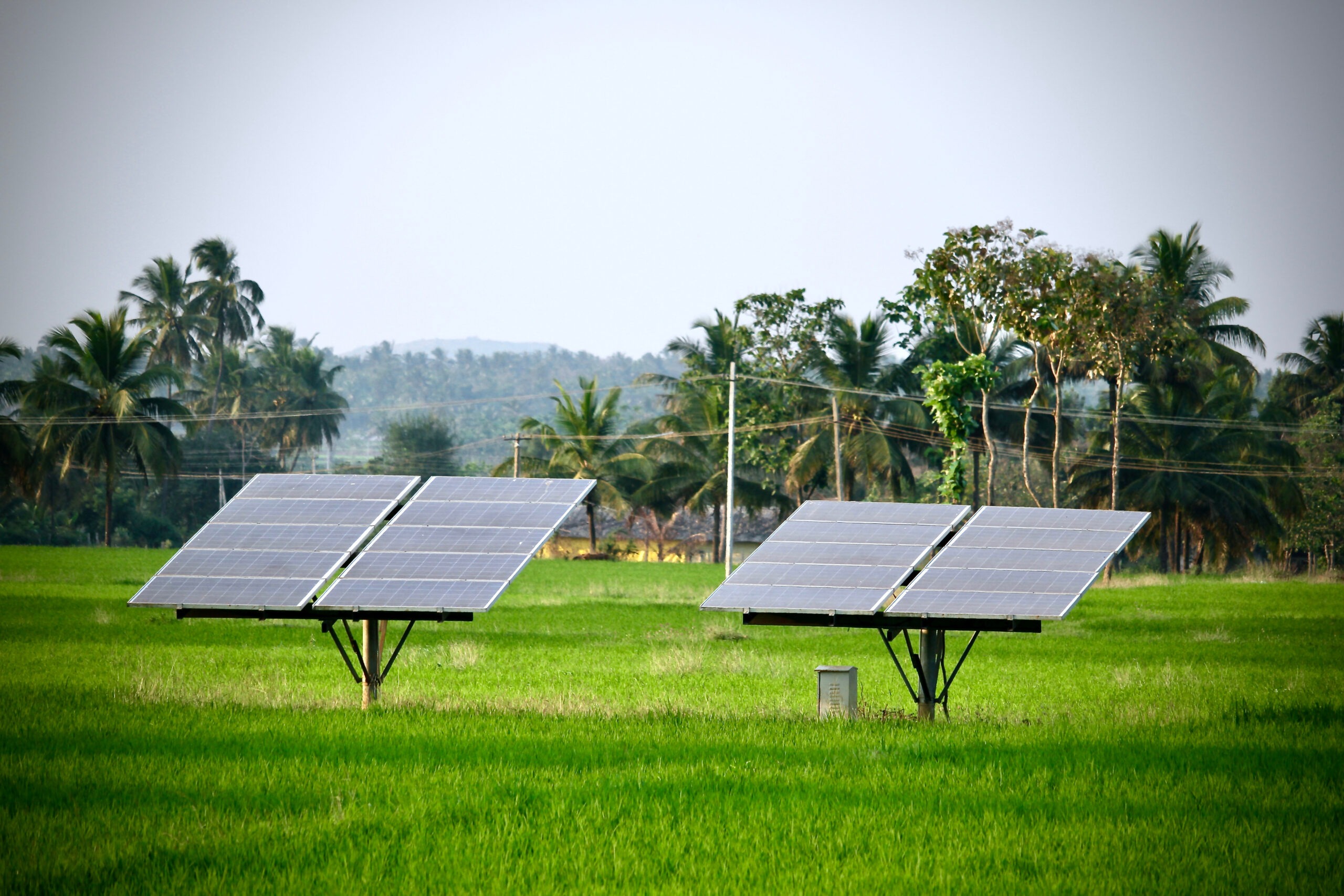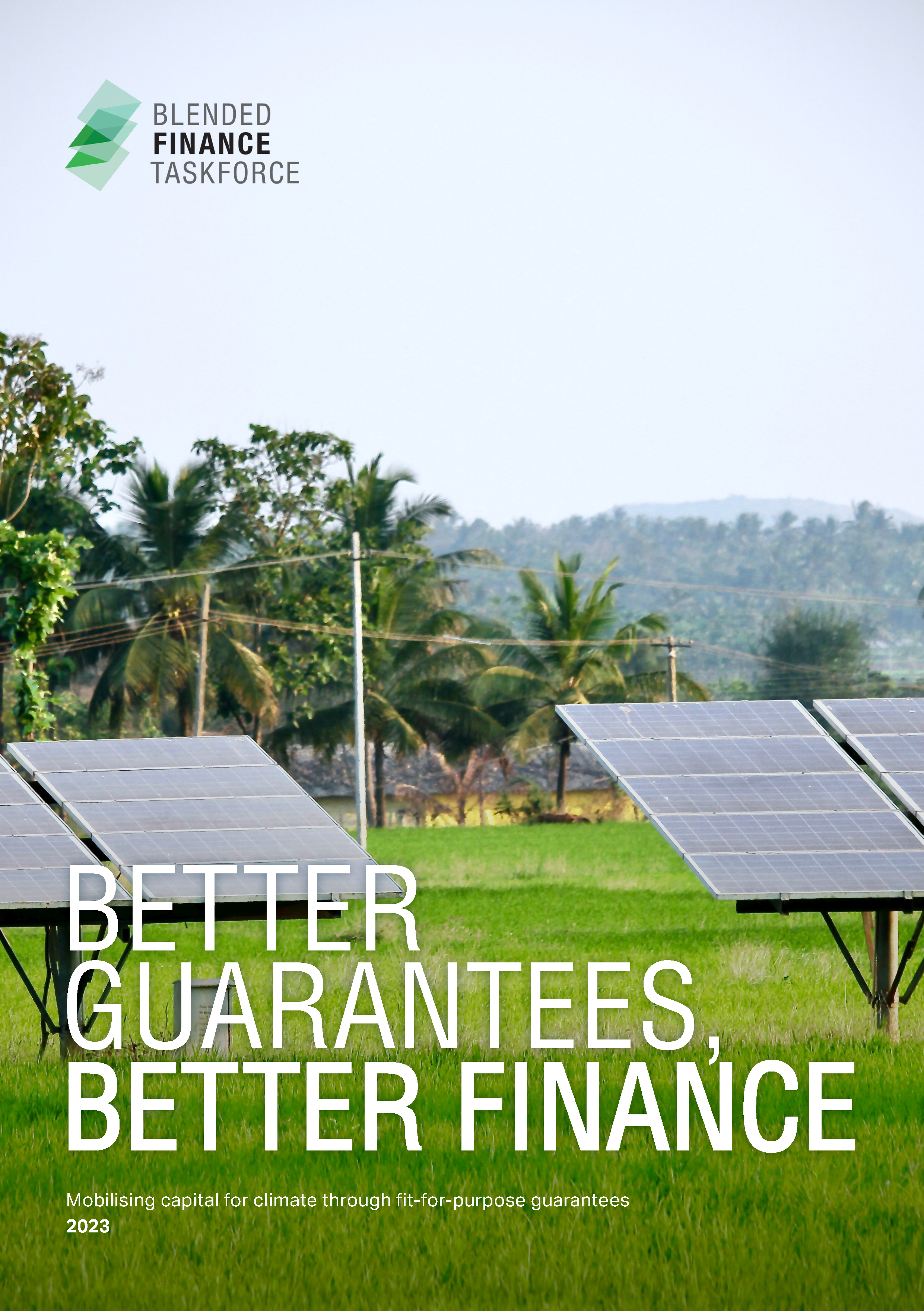Their outsized potential for impact makes guarantees one of the essential elements to unlock investment for climate action in Emerging Markets and Developing Economies, says Katherine Stodulka, Chair of the Blended Finance Taskforce.
The Taskforce’s latest report shows how a smarter use of public capital in guarantee products can help meet the fivefold scale-up in climate finance which is needed in emerging markets.
As global leaders gather in Paris for the Macron-Mottley Summit for a New Global Financing Pact, a new report from the Blended Finance Taskforce is calling on the use of guarantees to increase the mobilisation of private capital.
To narrow the funding gap, leaders should commit to scaling existing guarantee products and creating new green guarantee facilities which can mobilise private capital in developing countries to accelerate the transition to net zero, according to “Better Guarantees, Better Finance”.
Despite the potential, guarantees currently represent less than 5% of climate finance committed by Multilateral Development Banks (MDBs).
A smarter use of public capital in guarantee products which address credit and currency risks, are streamlined to reduce transaction costs and which are structurally linked to project development can help meet the 5x scale-up in climate finance which is needed in emerging markets for sustainable and inclusive growth.

Guarantees are a proven, catalytic use of public capital to mobilise private capital for climate action in emerging markets. We need to scale what works and fix what doesn’t.
When designed efficiently, with low barriers to access in a way which meets the needs of countries and investors, guarantees are one of the best levers to unlock investment for new investment opportunities in the energy transition and other low-carbon, nature-positive and equitable solutions. This is a no-brainer with outsized potential for impact.
Katherine Stodulka, Chair of the Blended Finance Taskforce
About $2.4 trillion per year is needed in Emerging Markets and Developing Economies excluding China (EMDEs) for climate action. Much of this can come from private sector investment into opportunities that are – or soon will be – commercially attractive. ‘Technology tipping points’ like cheap renewable energy are making low-carbon and nature-positive solutions investable – with the cost of green technologies dropping lower than their fossil-based alternatives.
Even so, capital is not flowing fast enough or at scale to meet this need or capture these new opportunities – often because of a high perception of country risk and a lack of pipeline in the places where these investments are needed. This results in an inflated cost of capital and currency risk in EMDEs.
Scaling climate finance in EMDEs to five times the current investment levels will require a smarter use of public capital to tackle some of these risks and bring down the cost of capital to unlock private investment. Today, less than 30 cents of private capital is unlocked by a dollar of public climate finance.
Increasing these mobilisation ratios (with appropriate safeguards) will be a critical lever to unlock capital and ensure the financial system is fit-for-purpose to capture emerging green investment opportunities in EMDEs. Guarantees can help. The new report highlights that guarantees can mobilise at least 5 times the average mobilisation ratio, yet guarantees represent less than 5% of climate finance instruments.
“Better Guarantees, Better Finance” calls for more catalytic use of public capital to scale existing guarantee products and create new green guarantee facilities to reduce the cost of capital by mitigating the perception of country/currency risk. It calls for guarantees to have a structural link to pipeline development and to be applied for energy and infrastructure as well as investments in other sectors like food and nature.
Analysis in the report shows that a $1bn grant could unlock $30bn investment in climate action in emerging markets and have a significant market-making impact. The report specifically calls on leaders in Paris to:
- Include a climate mobilisation mandate for public capital (with appropriate safeguards)
- Scale and accelerate access to guarantees at existing institutions with proven track record
- Develop new global green guarantee platforms targeting higher mobilisation, lower transaction costs and a structural link to project preparation.
The Blended Finance Taskforce is a global coalition launched in 2017 to tackle barriers which prevent capital from flowing to a net-zero, nature-positive and inclusive economy. The Taskforce helps optimise, design and scale climate deals and blended vehicles in emerging markets and works with pioneers to develop innovative investment partnerships and products. The Taskforce is housed at systems-change firm, Systemiq.


